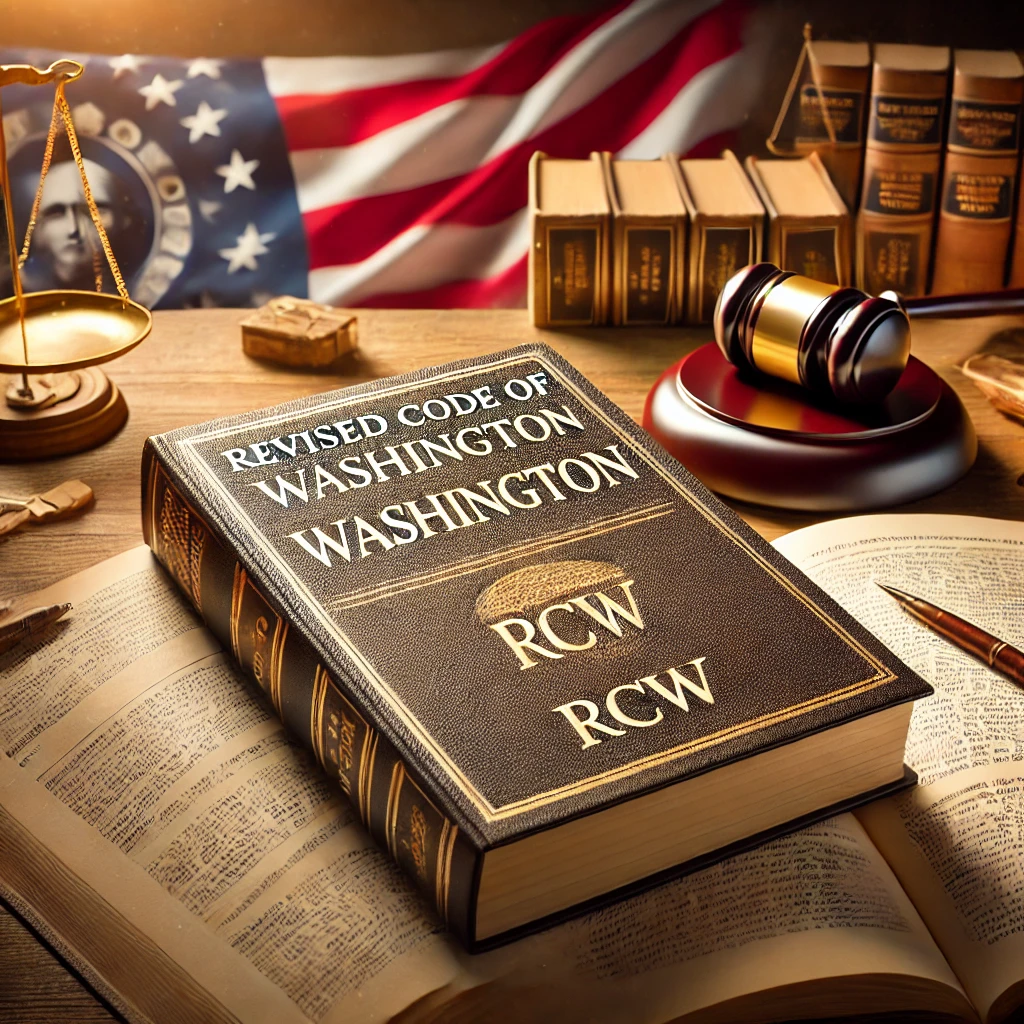Introduction: The Revised Code of Washington (RCW) is a comprehensive compilation of all permanent laws currently in force in the state of Washington. These laws are organized by subject matter into titles, chapters, and sections, making it easier for legal professionals, citizens, and government officials to navigate and understand the legal framework that governs the state. In this article, we will explore what the RCW is, its structure, and how it serves as the foundation of Washington State’s legal system.
What is the Revised Code of Washington (RCW)?
The RCW is essentially the codified law of Washington State. It includes all general and permanent laws enacted by the Washington State Legislature. The RCW is continuously updated to reflect new laws and amendments passed during legislative sessions, ensuring that it remains current and accurate.
The RCW is organized into several titles, each focusing on a specific area of law, such as criminal law, civil law, family law, and property law. Within each title, laws are further divided into chapters and sections. This hierarchical structure allows for easy reference and navigation, making it a valuable resource for anyone seeking to understand or apply Washington State law.
Structure of the RCW:
- Titles: The highest level of organization in the RCW is the title. Each title represents a broad area of law. For example, Title 46 covers motor vehicles, Title 9A deals with criminal code, and Title 26 focuses on domestic relations.
- Chapters: Within each title, laws are divided into chapters that address specific topics within the broader area of law. For instance, within Title 46 (Motor Vehicles), Chapter 46.61 covers rules of the road.
- Sections: Chapters are further divided into sections, which contain the actual text of the laws. Sections are the most specific level of organization and provide the detailed legal provisions that apply to specific situations.
How the RCW is Updated:
The RCW is not a static document. It is updated regularly to incorporate new laws passed by the Washington State Legislature. After each legislative session, the Office of the Code Reviser updates the RCW to include any new laws or amendments. This ensures that the RCW remains an accurate and reliable source of legal information.
Why the RCW is Important:
The RCW serves as the foundation of Washington State’s legal system. It provides the legal framework that governs everything from criminal justice and civil rights to property law and environmental regulations. Understanding the RCW is essential for anyone involved in legal proceedings, law enforcement, or public policy in Washington State.
Accessing the RCW:
The Revised Code of Washington is accessible to the public online, making it easy for anyone to look up specific laws or explore broader legal topics. You can access the RCW through the Washington State Legislature’s website, where it is available in a searchable format. This resource is invaluable for legal professionals, students, and citizens alike.
To explore the RCW, visit the official website here.
Conclusion:
The Revised Code of Washington (RCW) is the backbone of Washington State’s legal system, providing a comprehensive and organized collection of the state’s laws. Whether you are a legal professional, a student, or a concerned citizen, understanding and accessing the RCW is crucial for navigating the legal landscape of Washington State.
If you have any questions or need legal assistance related to Washington State law, don’t hesitate to reach out to legal professionals who can guide you through the complexities of the RCW.
About Blanford Law:
At Blanford Law, we are committed to providing relentless, fair, and honest legal representation. With over 20 years of experience, Ken Blanford founded our firm on the belief that every client deserves respect and the best possible defense, free from assumptions or preconceived notions. If you or someone you know is facing legal challenges, please contact us anytime at 253-720-9304 or email us at info@blanfordlaw.com.

